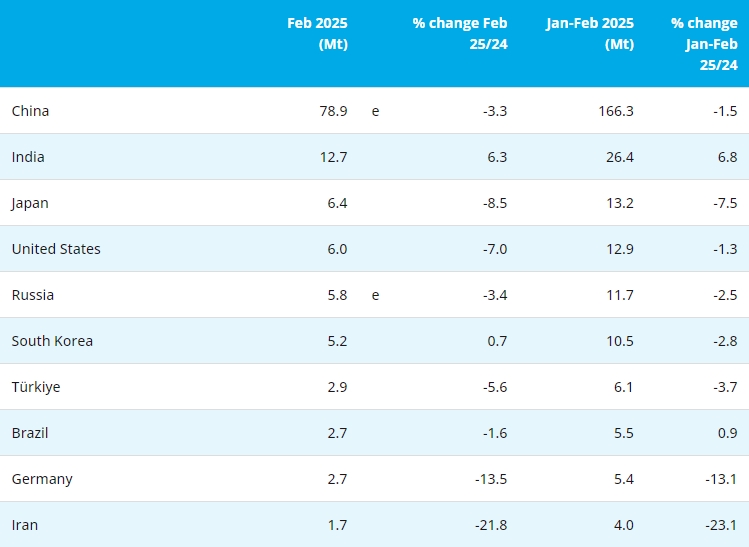[ferro-alloys.com]Sydney is a wonderful, modern town. But, over the past few days, all anyone here has wanted to talk to me about is that most 19th-century of industries: coal. It’s not hard to see why, after a startling report last week — quickly denied — that some Chinese ports had blocked shipments of Australian coal.
The Australian dollar briefly tanked on the news. Australia’s trade minister tried to calm matters, saying coal shipments to steel plants in China have been delayed before. Prime Minister Scott Morrison said that speculation China was punishing Australia for its ban on 5G equipment from Chinese national champion Huawei Technologies Co. Ltd. would cause “needless anxiety and concern, particularly in our mining and resources sector.”
Morrison is wrong, though. Australia’s mining sector needs to feel a lot more anxious than it seems to be.
Even if China wasn’t trying to send a political message to Australia, the idea that it might be cracking down on imported coal for its own reasons should be just as worrying. Exporters of high-quality coal, such as Australia, seem confident that demand will stay healthy even if some countries make heroic cuts. It’s expensive to substitute away from such coal, so they assume that nobody will ever do it.
Even if there’s no immediate threat, however, such complacency is frankly misplaced. Countries that have poor quality domestic coal are going to balk at paying for expensive coal imports forever. Instead, they will start investing in coal washing, or better quality domestic plants, or will pay a premium for whatever good domestic coal there is. It is that last which is probably motivating China right now. India is actively working on a plan to end coal imports completely.
The writing is on the wall for Morrison and others to read. Last week, the largest supplier of coal for international trade, Glencore Plc., promised its investors it wouldn’t increase production so as to be “resilient to regulatory, physical and operational risks related to climate change.” Financing for new coal assets is increasingly hard to come by; Indian coal miner Adani Power Ltd.’s proposed mine in Queensland is struggling to reach financial closure and nobody knows if support from Indian state-owned banks for the politically exposed company will continue beyond general elections in May.
Hopeful projections for future coal-import demand depend also on the assumption that coal-based generators in countries such as China and India will increasingly switch to high calorific-value coal of the type that Australia exports. That would require actually building new plants, however, and it’s hard to see financing for those being arranged either. India is going through a banking crisis fueled in part by over-lending to the thermal-power sector. Thermal-power plants in India and elsewhere that use cheaper, low-quality coal are already struggling to compete not just with gas-fired plants but also with increasingly affordable renewable energy. Who is going to invest in a new plant that uses expensive, imported coal?
There’s far too much magical thinking in big producer countries such as Australia about the long-term future of coal exports. The internal political and financial dynamics of coal-consuming countries such as India are shifting decisively away from imports. If any jobs are to be preserved in coal mining, we in India are naturally going to try to keep ours. And we certainly aren’t going to pay for anything other than equipping existing plants with better emissions-control technology. (Banks are reluctant to lend even for that, as it happens.)
Australia, which exports about 85 percent of its black coal output, should try to be realistic. One problem, as we know from the 2016 U.S. presidential election, is that coal mining makes for powerful politics as a symbol of a “strong,” job-producing economy. One commentator wrote in The Australian last week that “coal is essential to Australia’s standard of living.” While the opposition Labor party is mounting a strong challenge to the incumbent coalition government, coal-mining marginal constituencies are its Achilles heel.
Yet, the best thing that can be done for the coal-export industry and all those who depend on it is to prepare for its end. Because that is, one way or another, looking inevitable.
(Mining.com)
- [Editor:อ๕ฟษ]



 Save
Save Print
Print Daily News
Daily News Research
Research Magazine
Magazine Company Database
Company Database Customized Database
Customized Database Conferences
Conferences Advertisement
Advertisement Trade
Trade








 Online inquiry
Online inquiry Contact
Contact

Tell Us What You Think